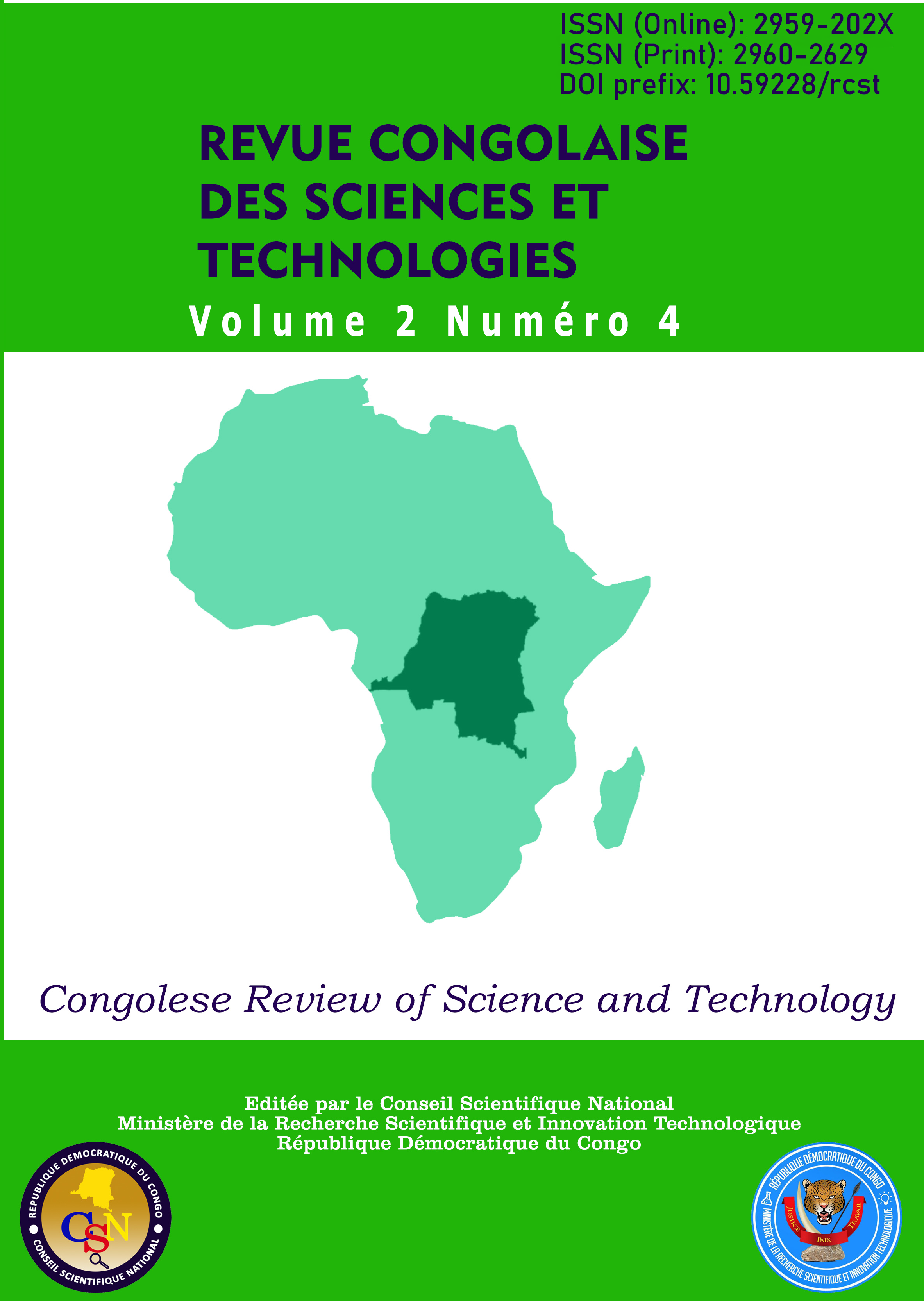Implication of the the United Nations program for the development in the struggle against the socioeconomic poverty in Democratic Republic of the Congo
Main Article Content
Abstract
In the preamble of the charter of the United Nations, it is underlined that the peoples of the world commit to encourage the socioeconomic progress and to institute the best conditions of life in a bigger liberty. It is in this context that the Program of the Nations-United has been created for the Development, in UNDP acronym. Thus, the UNDP helps the developmental countries to use their natural and human resources, to raise their standard of living, better to fight against the different reasons of poverty while reinforcing the food security and the offer in the centers of welcomes and in service of basis, while encouraging the creation of jobs. Our question of survey is to know what is the contribution of the UNDP in the struggle against poverty in Democratic Republic of the Congo. The object of our survey is that poverty is an individual drama lived to the daily by each of us. Of this fact, the struggle hired against her that is a struggle of survival, interest more than 90% of the Congolese that are victims of it. On that, it is necessary to attenuate this drama. As for the present survey, we are going to use the method structuro-fonctionnaliste. Because it is going to allow us to understand the organization and the working of UNDP as well as its role, with regard to the Democratic Republic of the Congo. This method will be completed by the documentary technique. Finally, the UNDP contributed in the struggle against the socioeconomic poverty through the domain of good governance, the sector of the protection of the environment and then in the setting of the humanitarian aid. It makes itself that the contribution of the UNDP was derisory considering the needs of the Congolese population, victim of the degrading socioeconomic conditions. However, the UNDP has for role to promote the national development, to put an end to poverty and to institute the peace locally thanks to managed and sustained activities.
Article Details
Section

This work is licensed under a Creative Commons Attribution-NonCommercial-ShareAlike 4.0 International License.
References
Iyeli. (2019). Séminaire de méthodes de recherche en Sciences Sociales. Kinshasa, CRESH.
Kambamba, K.D. (2013). Analyse de la pauvrété, la santé et du genre en R.D.C. [Mémoire de master, Université de Kinshasa].
Lisimo, A. (2022). Apport du Comité International de la Croix-Rouge à la paix dans la Province Orientale en République Démocratique du Congo. Rev. Cong. Sci. Technol., 1(1), 46-54.
Okandjo. (2013). Histoire générale du Congo. Kisangani, Institut de Recherche en Sciences Appliquées (IRSA).
PNUD. (2006). Rapport annuel des activités du Programme des Nation Unies pour le Développement. Données démographiques et statistiques pour la République Démocratique du Congo. New York.
PNUD. (2015). Rapport de OMD sur la reduction de la pauvrété. « Evaluation des progrès accomplis par la République Démocratique du Congo dans la realisation des objesctifs du millenaire pour le développement ». Consulté le 29 mai 2023. https://www.undp.org
PNUD. (2019). Rapport mondial sur le développement humain. Consulté le 29 avril 2023. https://www.undp.org
PNUD. (2022). Rapport annuel sur la cooperation du développement en R.D.C. Consulté le 22 mai 2023. https://www.undp.org
Ministère du Plan de la RDC. (2002). Programme multisectoriel d’urgence de reconstruction et réhabilitation. Consulté le 22 mai 2023. https://projetcsportal.afdb.org
Ministère du Plan de la RDC. (2016). Plan national stratégique de développement de la République Démocratique du Congo à l’horizon 2050. Conslté le 20 mai 2023. https://www.budget.gouv.cd
Steinmetz, G. (2004). L’écriture du diable: discours précolonial, posture ethnographique et tensions dans l’administration coloniale. Politik, 17(66), 49.
Stengers, J. (2005). Pour la reconnaissance de l’Etat Indépendant du Congo en tant que puissance souveraine. Bruxelles, UCLouvain.

